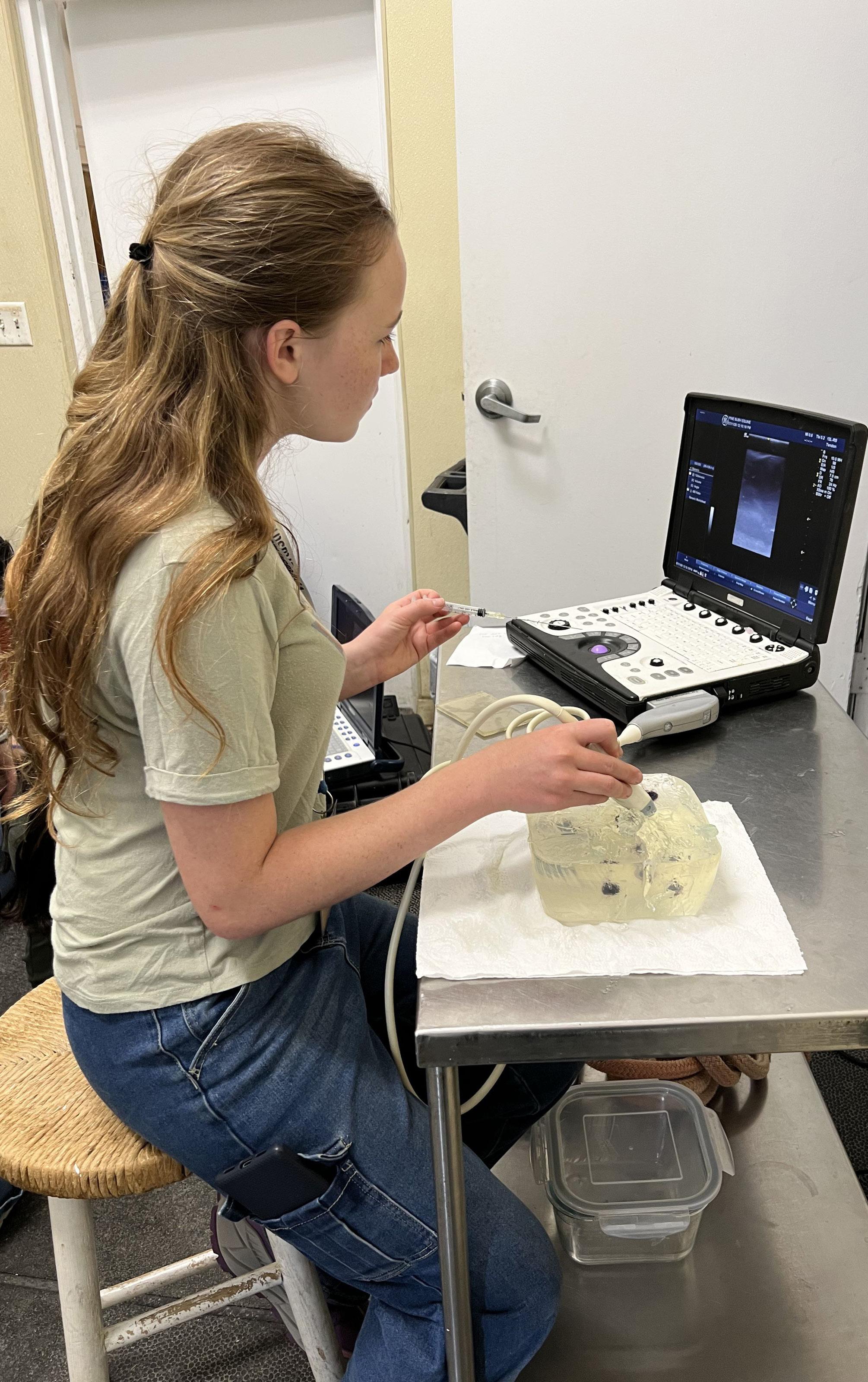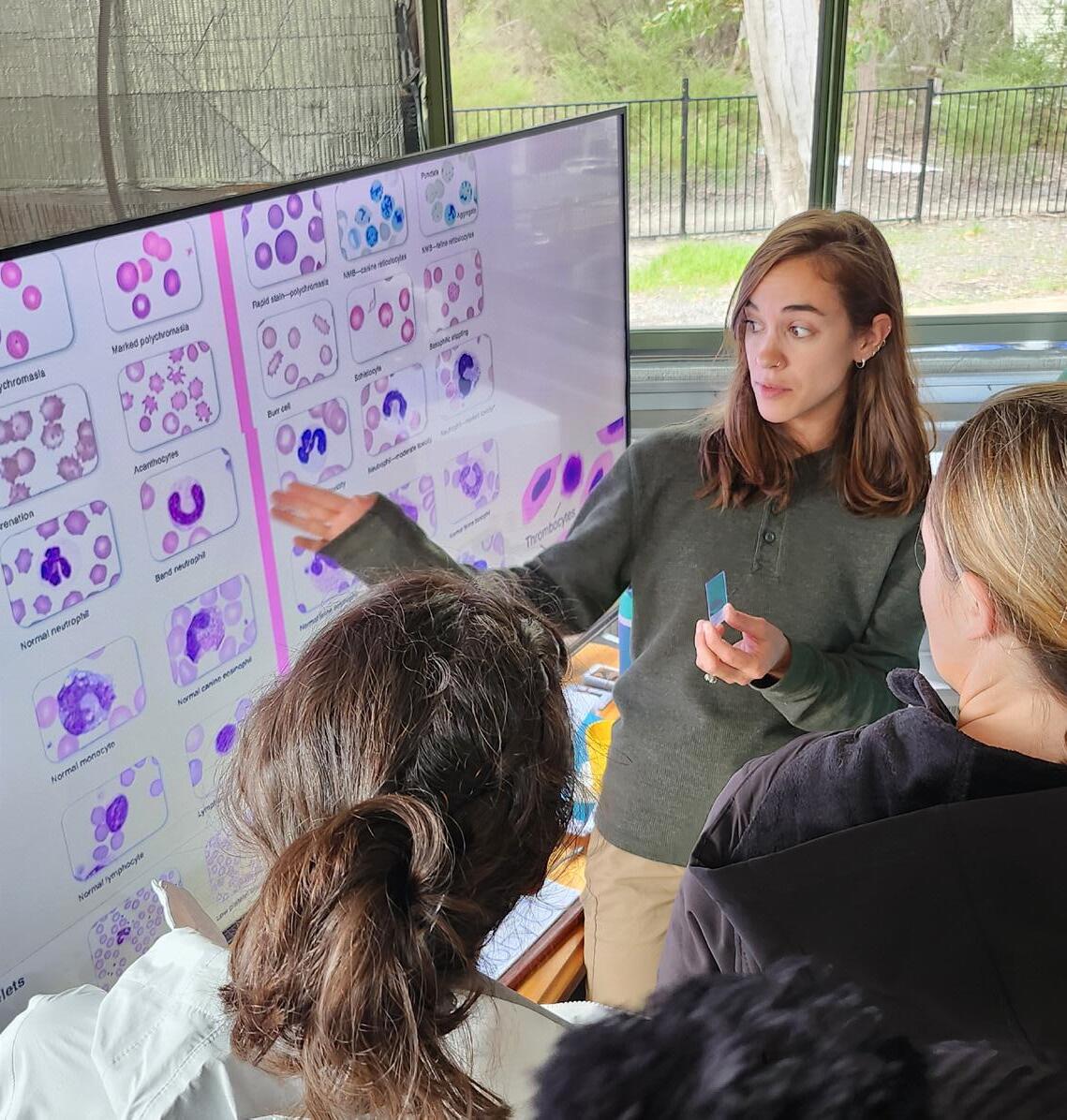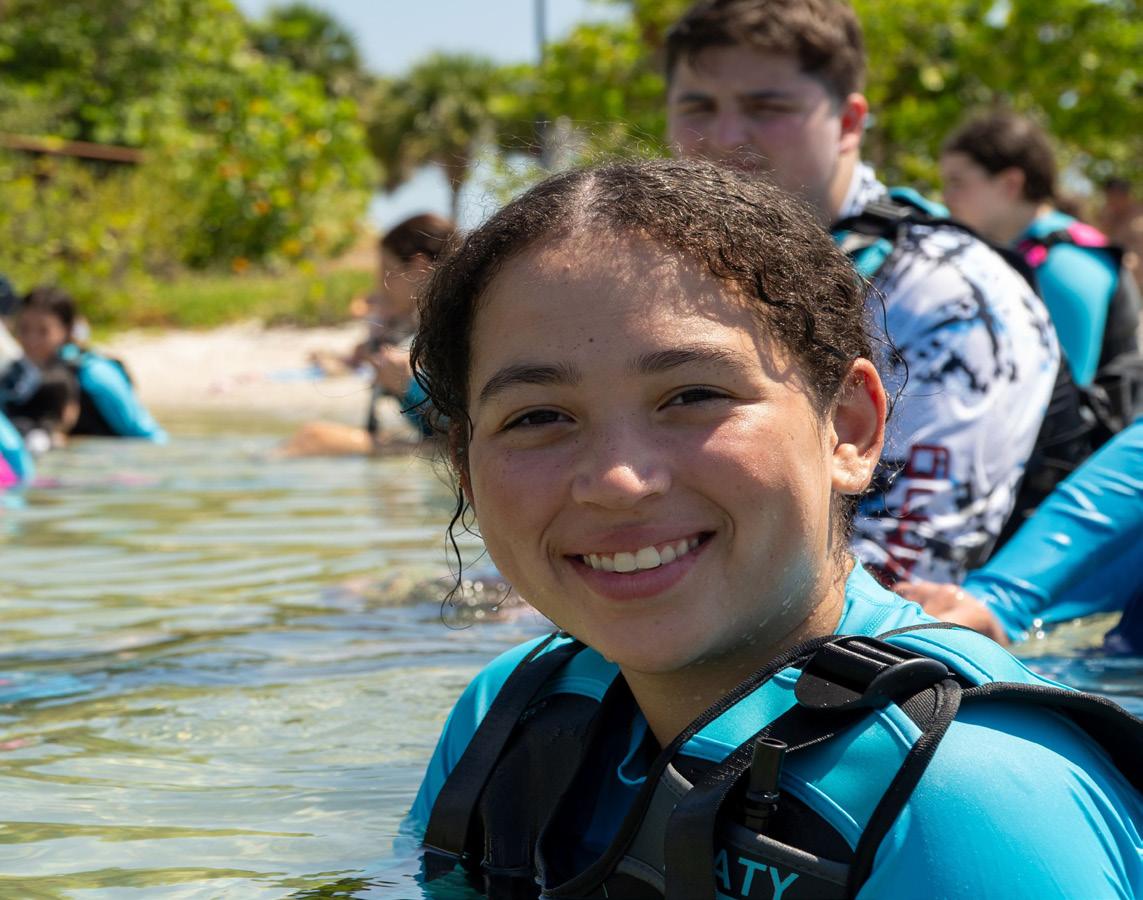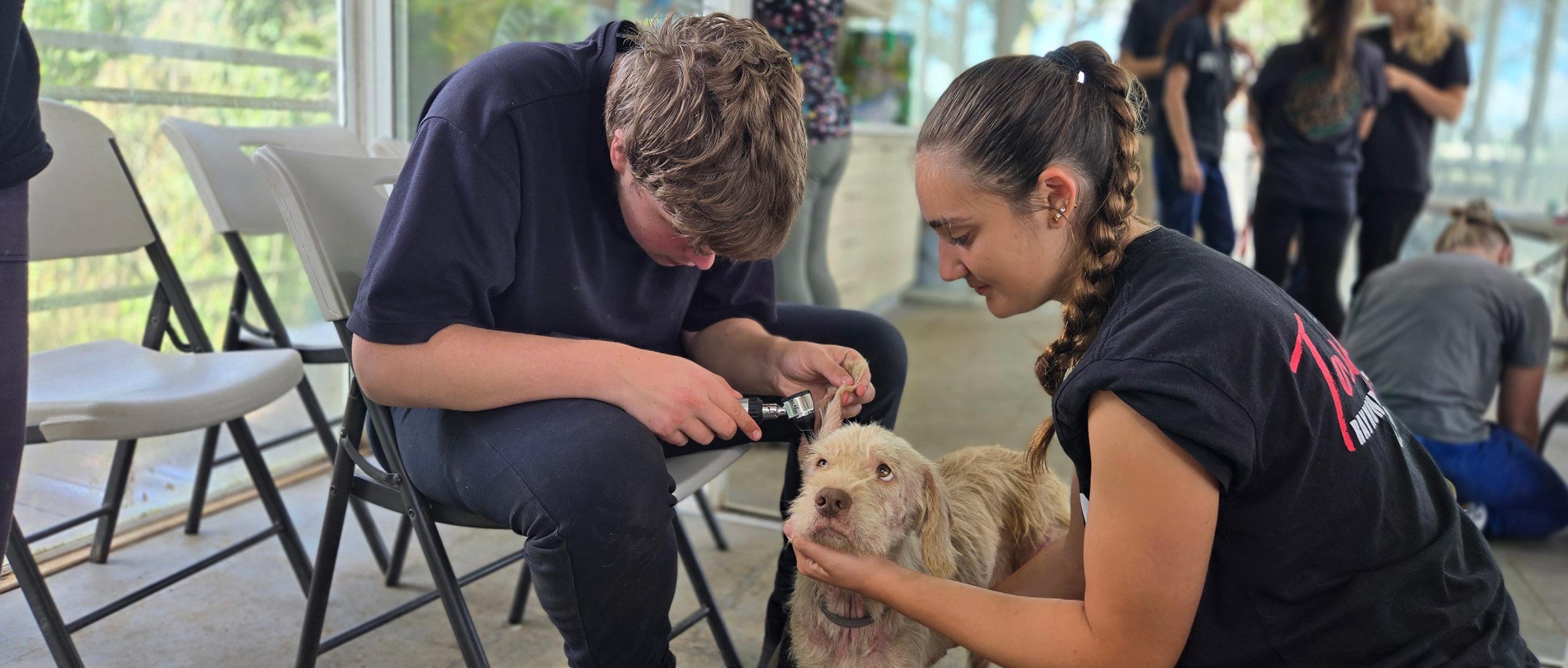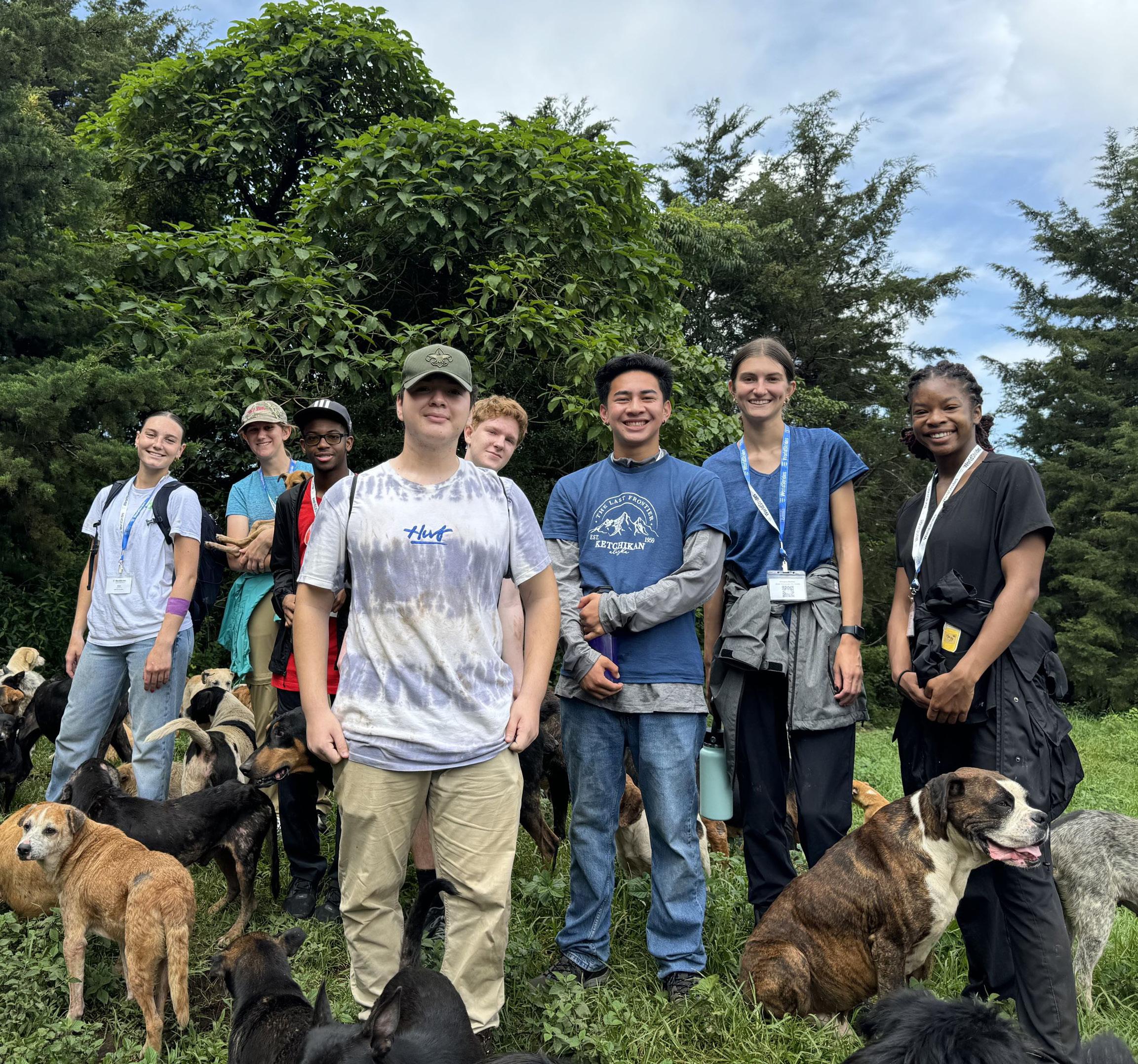VETERINARY ACADEMY BY WORLDSTRIDES
Go where the wild things are
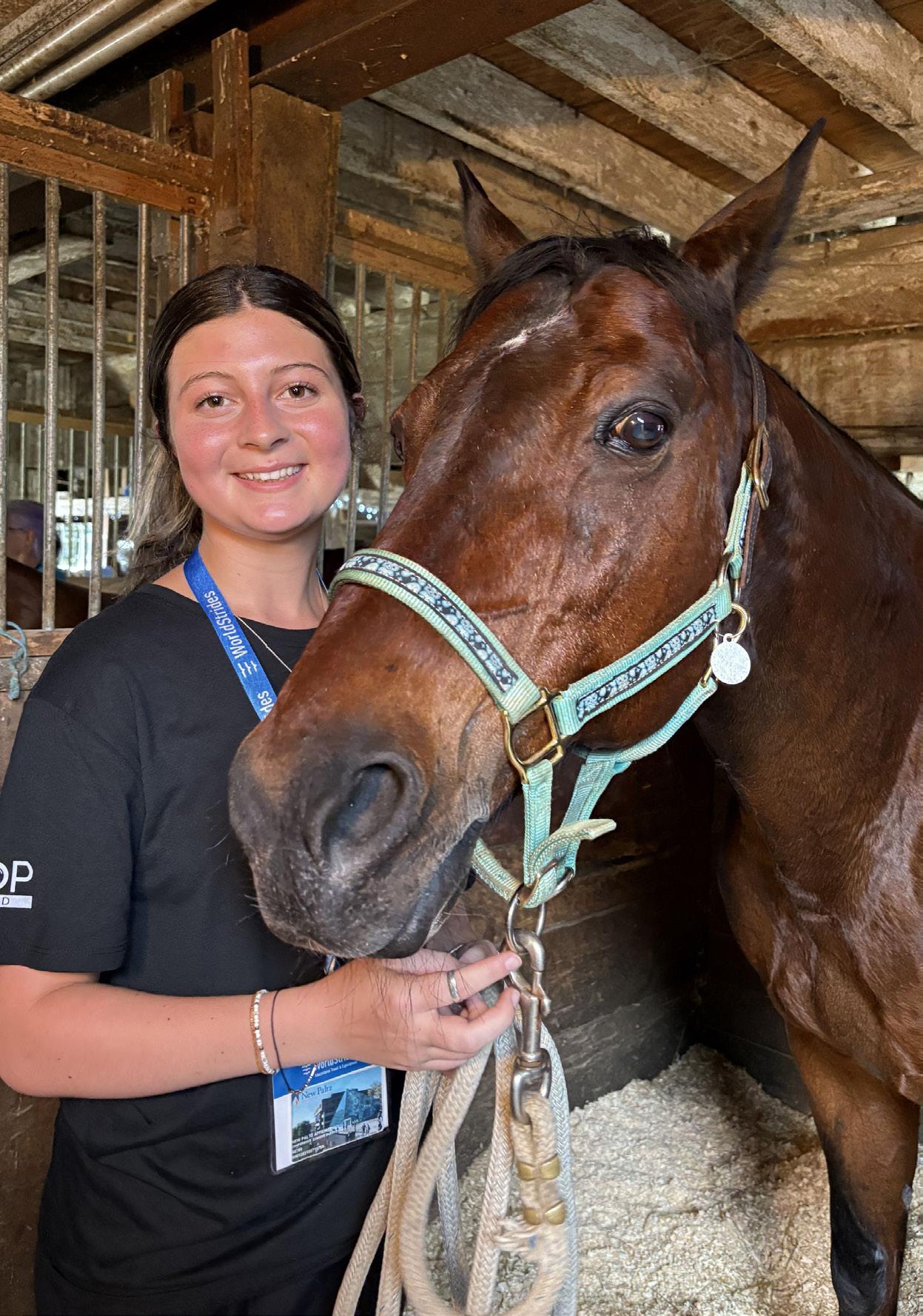
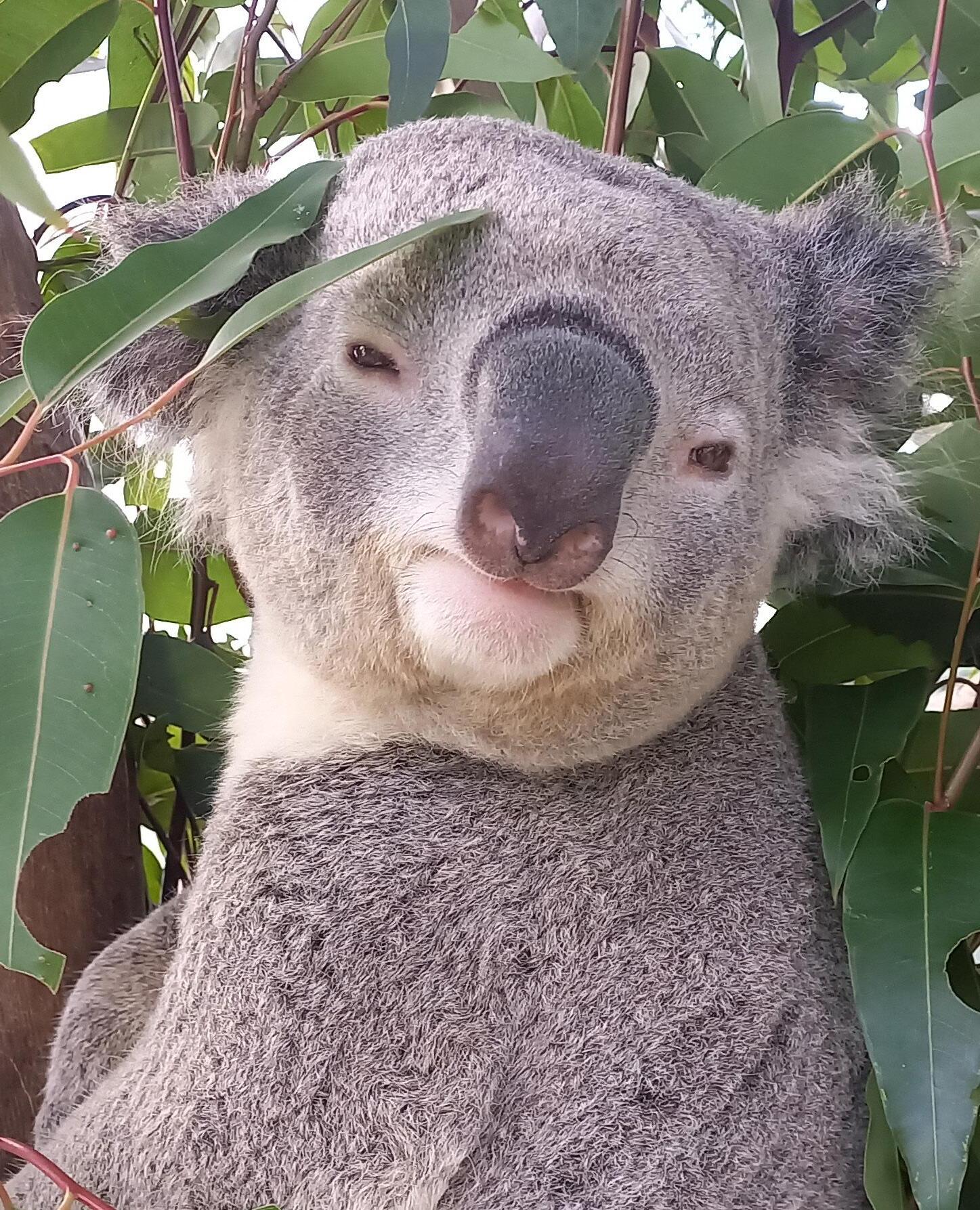
Dear Students, Parents, and Teachers,
I’m excited to welcome you to the Veterinary Academy program. I co-founded Loop Abroad when I was a student at Harvard University’s Graduate School of Education to immerse students who love animals (like you!) in the hands-on experience of animal care and conservation. What began as a group of nine students in Thailand has grown into a global network of veterinary partners, conservationists, and passionate alumni.
Despite this enormous growth, I’m proud to say that we’ve stayed true to our original commitment to animal welfare and respect for all living things. This is why I’m so glad to be partnering with WorldStrides on the Veterinary Academy program to offer all students who are passionate about animal welfare the chance to experience this life-changing program. One of the greatest joys of my professional career has been hiring teaching veterinarians who attended a Loop Abroad program in high school or college and know that it truly changed the course of their career.
I hope to see you on the Veterinary Academy program soon!
Best,
Jane Stine, JD, M.Ed. Co-Founder and Managing Director Loop Abroad
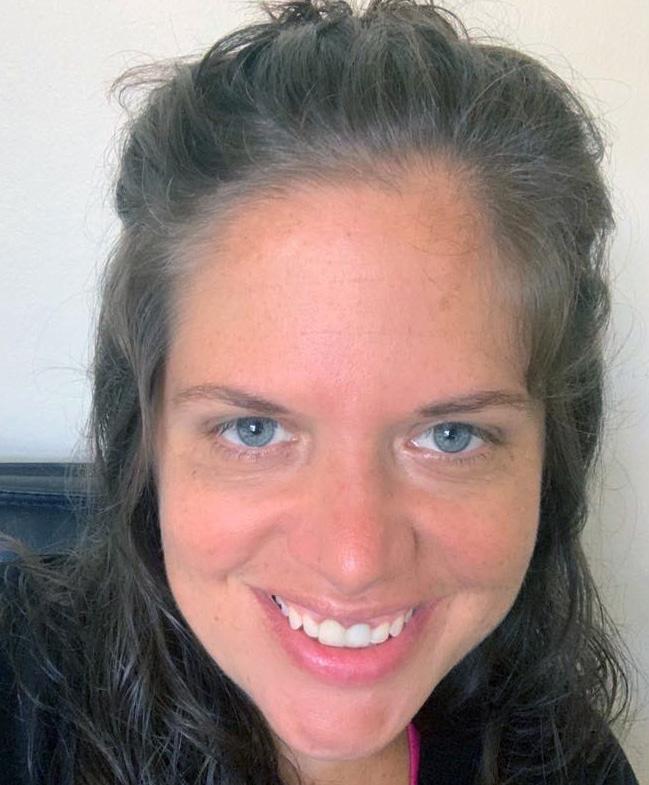
and
Veterinary Academy by WorldStrides
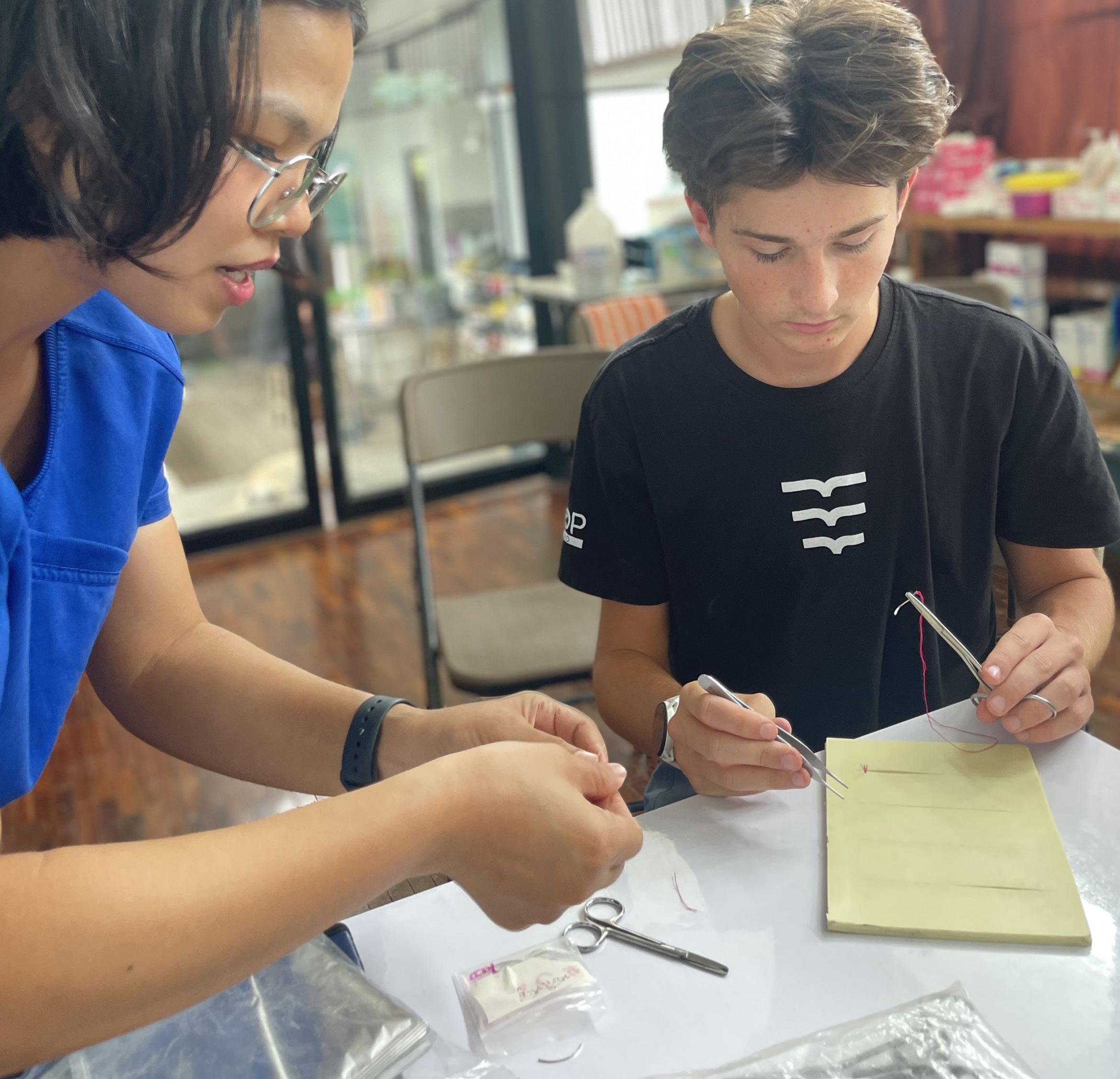
Ignite your future
Veterinary Academy, a WorldStrides program in partnership with Loop Abroad, is a unique opportunity for passionate students to get hands-on experience learning about veterinary science. Students can earn up to 80 veterinary hours that can be included as part of their applications to veterinary school.
Program Highlights
Veterinary Academy programs are designed to give high-aspiring middle and high school students a hands-on introduction to the growing career paths available within veterinary medicine. These programs offer a unique and immersive introduction to specialized areas of animal science, all delivered in a small group setting, within a safe and secure environment.
Veterinary Academy is your chance to learn from teaching veterinarians and seasoned animal care and conservation professionals as you witness firsthand the behind-the-scenes moments in a working veterinarian’s life.
You can look forward to countless incredible experiences, including:
• Time with a variety of animals, practicing handling, rehabilitation, and various clinical skills*
• Honing your skills through daily field classes, lectures, or laboratory workshops
• Learning in groups of 15 or fewer, on average, giving you endless opportunities to ask questions of your teaching veterinarian
• Shadowing animal care experts as you study topics ranging from veterinary surgery to farm animal care to marine animal research
• Living and working alongside fellow students who are equally passionate about caring for animals
You can also earn up to 80 veterinary hours—a required part of every vet school application!
Staffing & Supervision
At WorldStrides the safety and well-being of each student is our highest priority. Veterinary Academy, with an overall student-to-staff ratio of 7:1, is staffed by an on-site director who oversees the entire program experience. Teaching veterinarians lead educational activities with a student-to-teaching veterinarian ratio of 15:1 while supporting staff lead evening activities. Staff members have extensive experience in veterinary medicine, travel programs, and working with students. All WorldStrides staff members undergo background checks and are trained extensively on safety procedures.
Location
Veterinary Academy offers programs in the United States, Costa Rica, and Australia. Students and staff will stay together in the same location to ensure 24/7 supervision and support. Accommodations vary by program location and may include university dorms, hotels, and on-site housing at wildlife sanctuaries.
*Please Note: For your own safety as well as the safety of the animals, not all animals may be touched or held by participants. Your teaching veterinarian will advise you of the proper time, place, and method to handle animals when it is safe to do so.

Middle School Programs United States
WASHINGTON, D.C.
Future Vet: Zoo Medicine
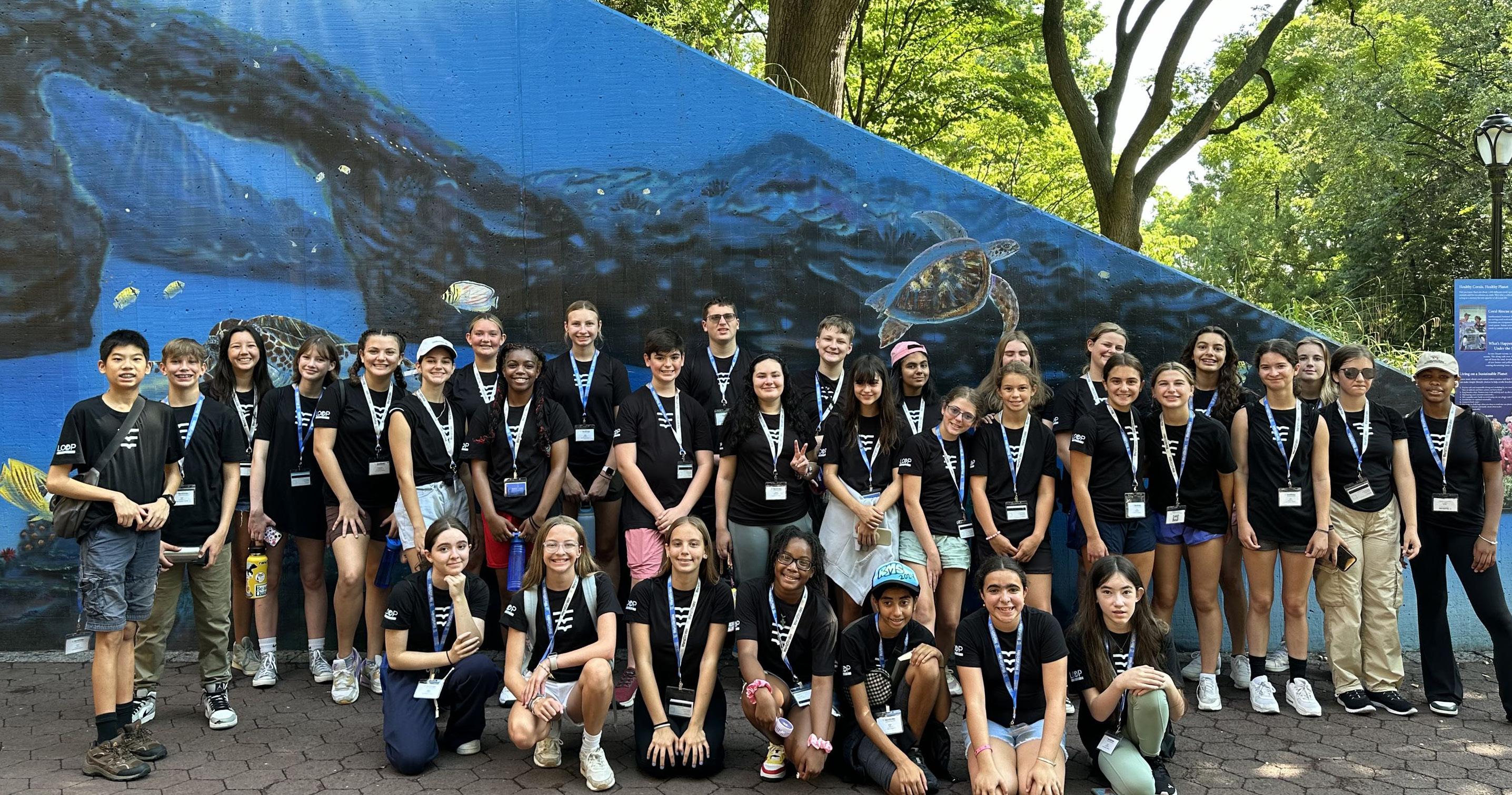
Grades: 6–8
Dates: Residential: June 21–27 | June 28–July 4 Day: June 22–27 | June 29–July 4
Getting an early taste of various potential careers is essential for young students. At Future Vet: Zoo Medicine in Washington, D.C. students can look forward to doing just that as they:
• Get hands-on experience in the lab using the same tools and techniques as professional veterinarians, including practicing physical exams and veterinary first aid, learning suturing techniques, blow dart practice, and performing an assisted dissection.
• Explore life at a local zoo that is home to over 2,100 animals that represent nearly 400 species, to learn about the important roles played by zookeepers and veterinarians. Students will also learn about the business side of caring for animals from the cost of animal feed to enclosure design and maintenance, designing enrichment activities, and the important role of zoos in animal conservation.
• Learn about veterinary school, including the application process and the various career paths in veterinary science.
VICTORIA, TX
Future Vet: Zoo Medicine
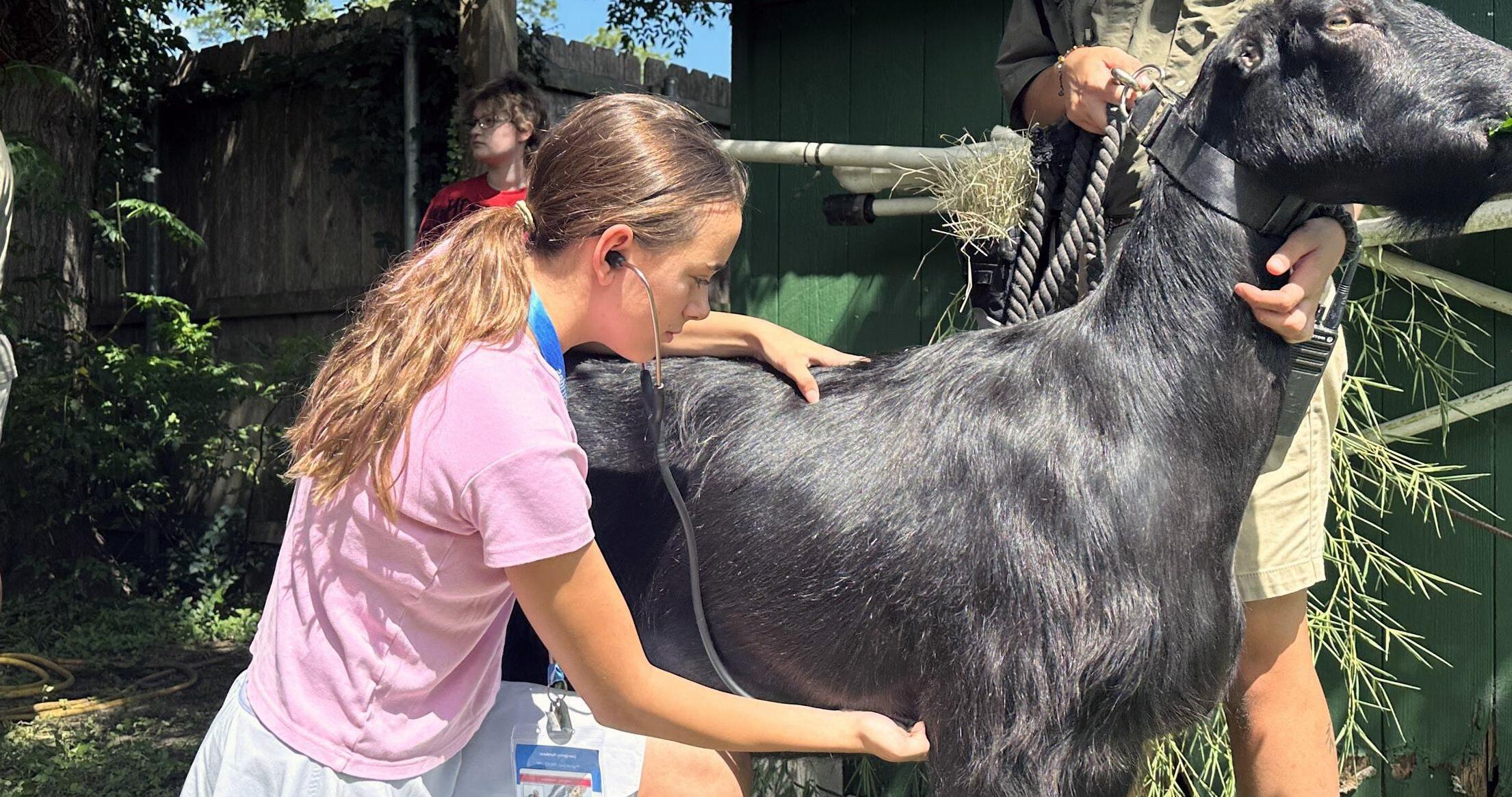
Grades: 6–8
Dates: July 5–11
Residential only program
Tuition: $3,999
The Texas Zoo is on a mission to connect the public with wildlife and the importance of preserving as many species and habitats as possible. Many of the animals at the Texas Zoo are native to Texas and most are rescue animals that could not be returned to the wild. During their time at Future Vet: Zoo Medicine in Texas, students can look forward to:
• Daily animal care rotations including food preparation, enclosure maintenance, and designing animal enrichment activities.
• Field classes to explore important topics like animal behavioral observations, zoo ethics, rehabilitation and release, conducting large animal exams, and veterinary diagnostics across the different areas of the Texas Zoo.
• Researching and presenting their own Keeper Talk to the visiting public at the zoo
• Time in the lab participating in lab activities including wound suturing and bandaging, parasitology, small animal physical exams, and an enclosure design workshop.
Future Vet: Zoo Medicine ATTLEBORO, MA

Grades: 6–8
Dates: July 5–11
Residential only program
Tuition: $4,799
The Capron Park Zoo, home to about 100 animals representing 44 species, is on a mission to inspire the public to become more interested in the natural world through their exhibits and outreach programs. During their time at Future Vet: Zoo Medicine in Massachusetts, students can look forward to:
• Daily animal care rotations including food preparation, enclosure maintenance, and designing animal enrichment activities.
• Field classes to explore important topics like animal behavioral observations, zoo ethics, rehabilitation and release, conducting large animal exams, and veterinary diagnostics across the different areas of the Capron Park Zoo.
• Researching and presenting their own Keeper Talk to the visiting public at the zoo
• Time in the lab participating in lab activities including wound suturing and bandaging, parasitology, small animal physical exams, and an enclosure design workshop.
• Visiting a working farm to learn about large animal medicine, an in-demand veterinary specialty in the United States and around the world. Students will gain experience working with horses, pigs, and cattle.
PINE BUSH, NY
Future Vet: Horses & Large Animals
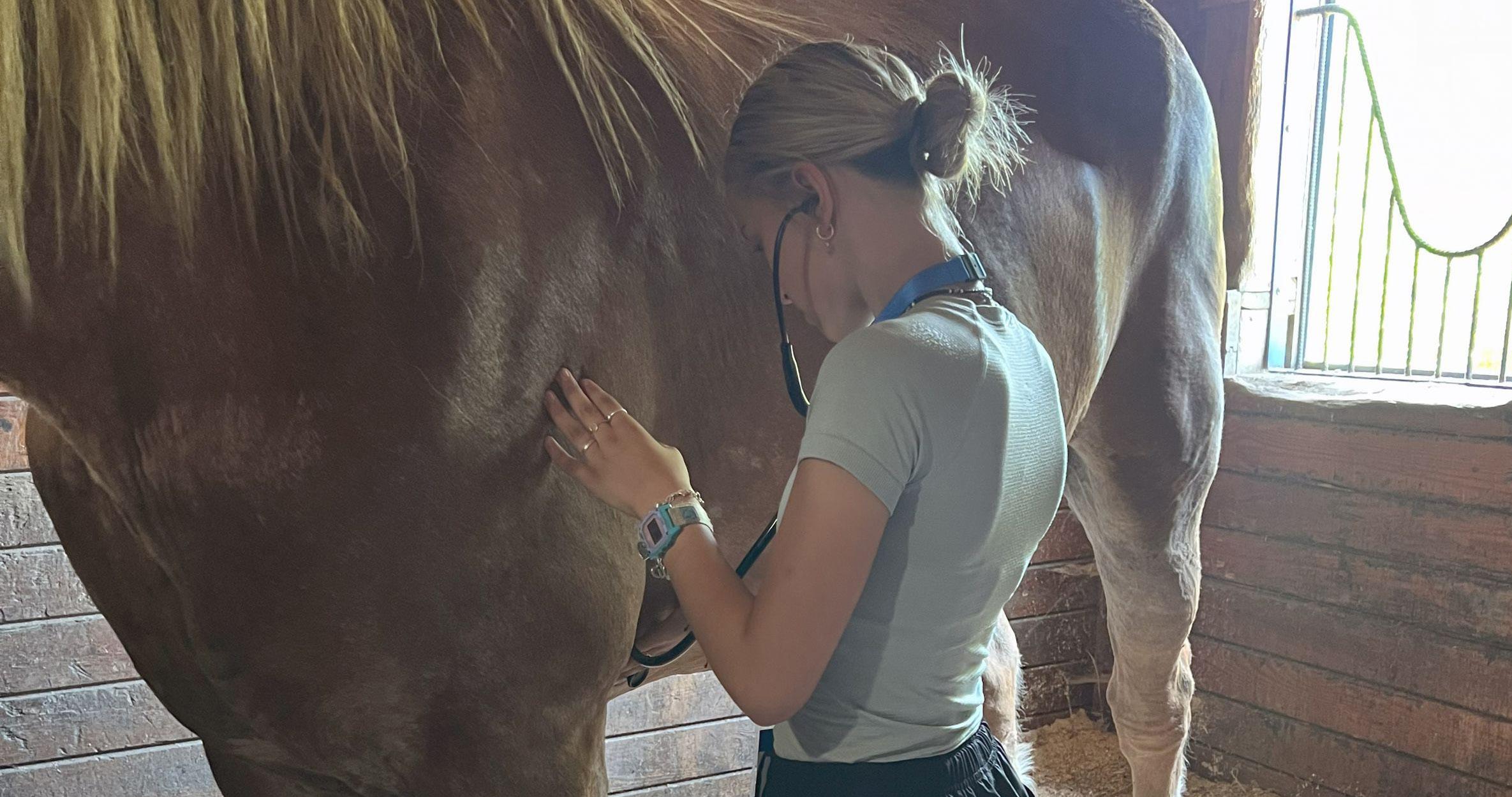
Grades: 6–8
Dates: June 28–July 4
Residential only program
Tuition: $4,999
Large animal medicine is a vitally important job in protecting the well-being of horses as well as the various farm animals and humans they often come into contact with. During their time at Future Vet: Horses & Large Animals in New York, students can look forward to:
• Shadowing a working large animal veterinarian as they care for rehabilitating horses and teach students how to perform physical exams, prep horses for surgery, and how to properly bandage healing wounds.
• Participating in clinical lab rotations to practice vital skills, including using a microscope to conduct blood smear examinations, calculating prescription dosages, and proper suturing and injection techniques.
• Learning about reproductive and neonatal health principles, preventative care techniques, and the importance of biosecurity and parasite control during a visit to a local horse breeding facility.
• Spending time at several equine rescue facilities and participating in hands-on experience on the horses there, including performing physical exams, practicing bandaging techniques, and identifying signs of lameness, illness, or prior medical conditions.


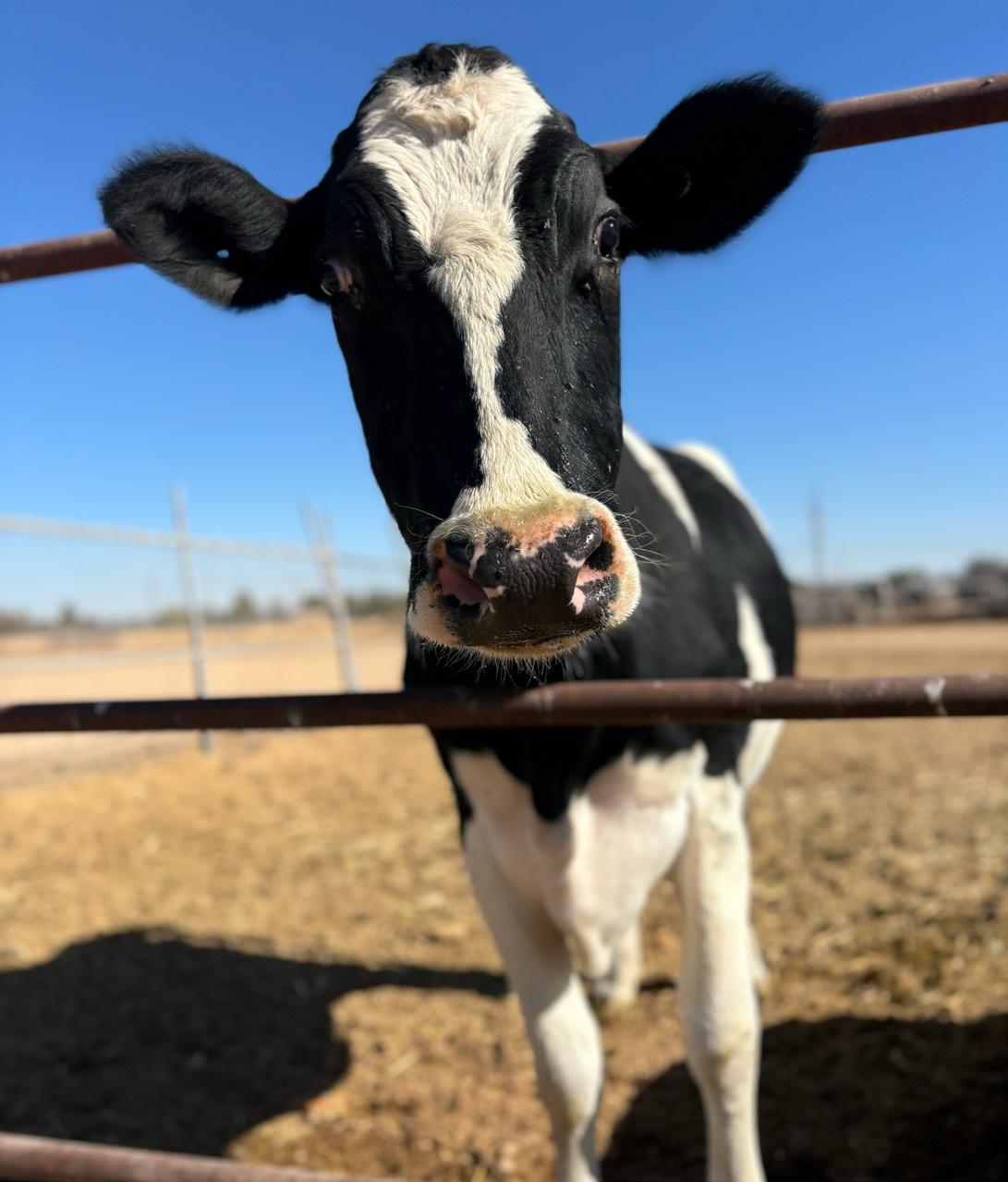
“[Attending her Veterinary Academy program] increased Sophia’s confidence and interpersonal skills and confirmed that wants to be a vet.”
Teresa | Parent of Veterinary Academy Alum
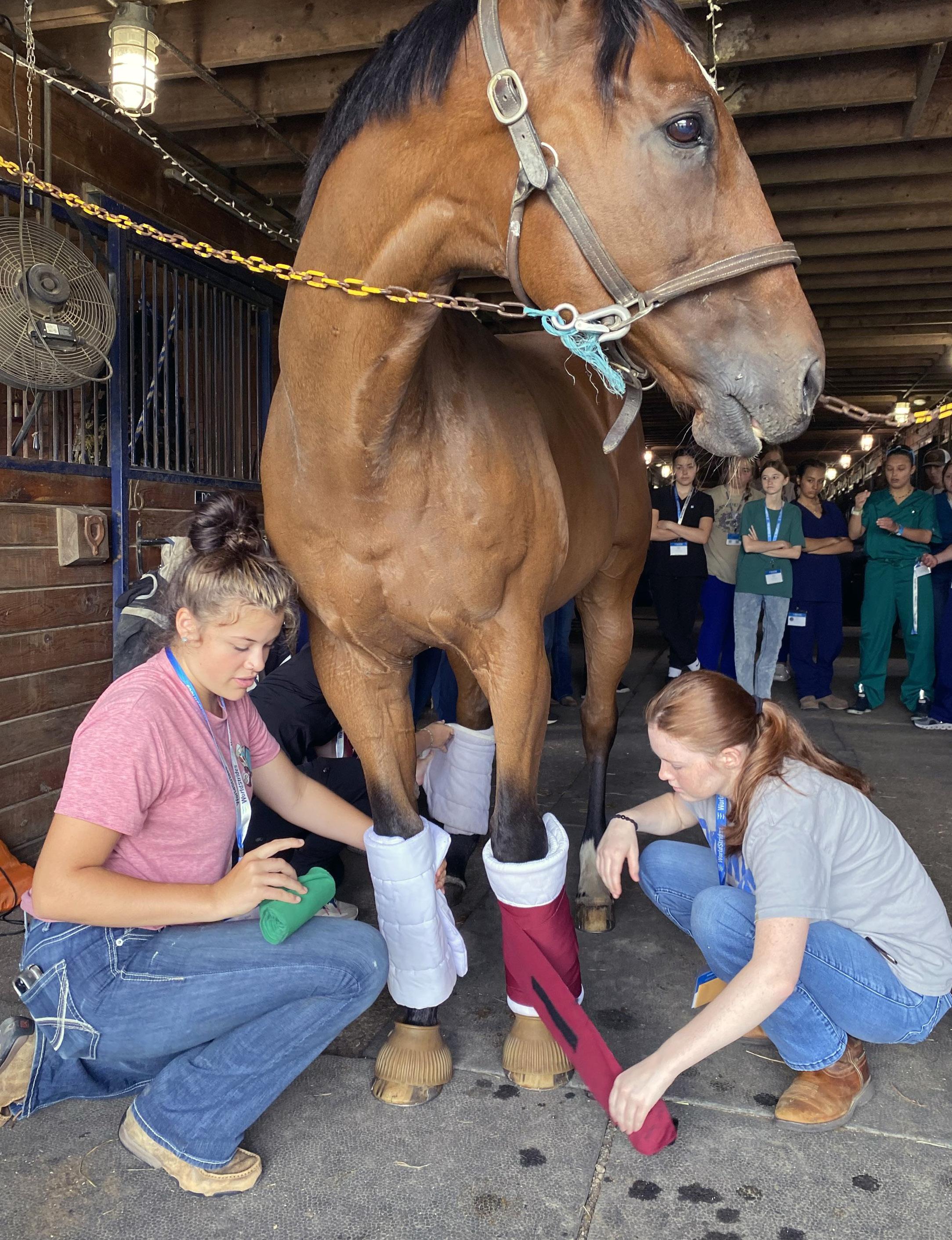
High School Programs United States
Marine Biology WEST PALM BEACH, FL
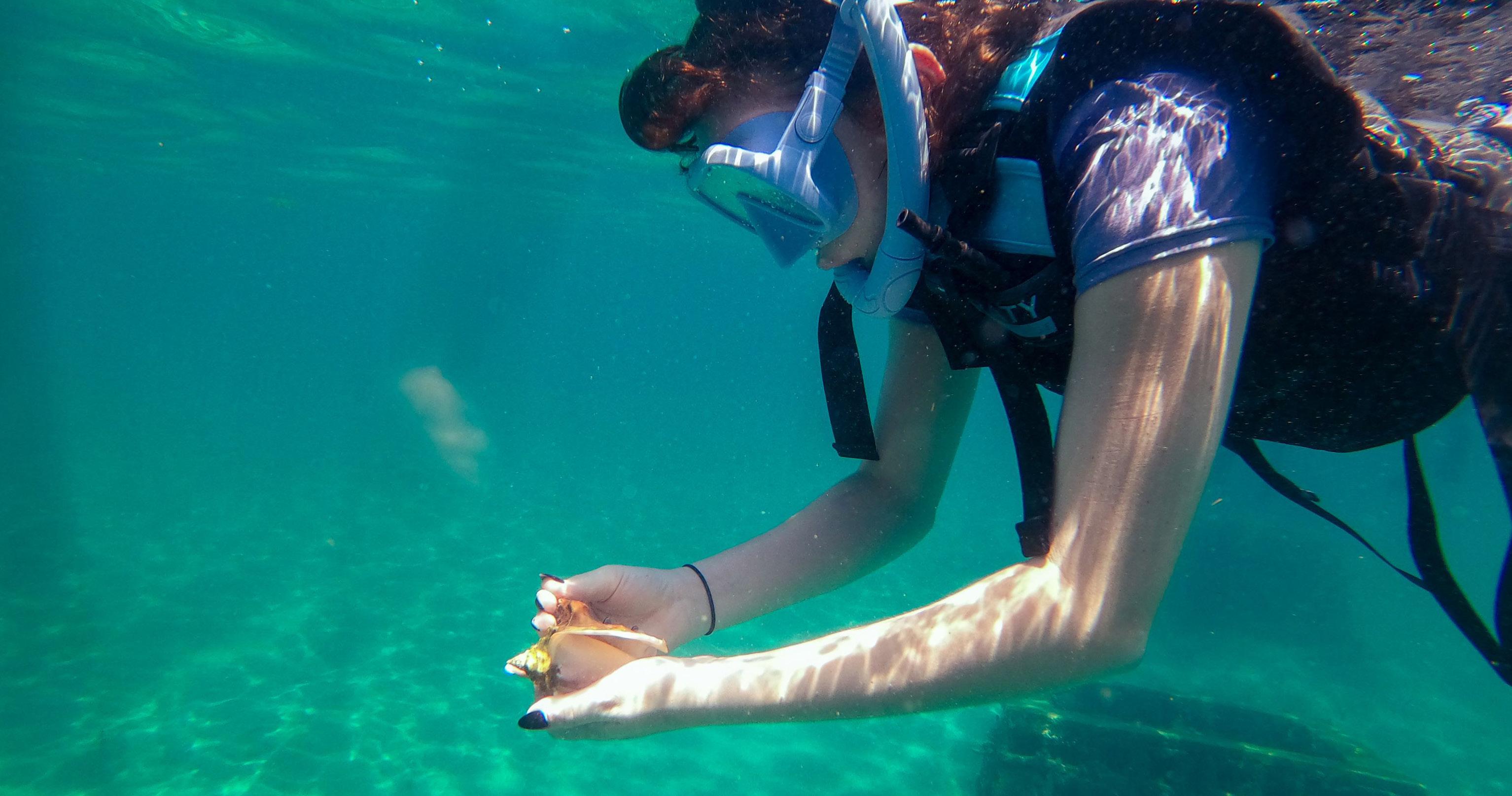
Grades: 9–12
Dates: July 19–25
Residential only program
Tuition: $3,799
Florida’s coral reefs are an important part of the ocean’s ecosystem and they’re disappearing. During your time at Veterinary Academy: Marine Biology, you’ll contribute to the vital conservation efforts of The Reef Institute. That means you can look forward to:
• Data collection runs to monitor coral and fish conditions and perform coral tagging. You’ll receive on-the-spot training in data collection as you performing in-water monitoring of stony and soft corals and fish populations.
• Time in the land-based nursery to learn about the latest innovations in coral conservation like gene banking. The Reef Institute currently houses over 329 colonies of coral in their land-based nursery. You’ll go behind the scenes of this cutting-edge research facility to learn about the latest innovations in conservation technology.
• Excursions to Peanut Island where you’ll spend several days exploring, tagging coral, and identifying fish species. Home to at least 20 different species of corals, the lagoon at Peanut Island is also home to eels, fish, turtles, sea horses, manatees, and even the occasional shark.
• Exploring the flora and fauna of John D. MacArthur Beach State Park, a barrier island habitat that protects rare and endangered plant and animal species from the elements.
Horses & Large Animals MARICOPA, AZ
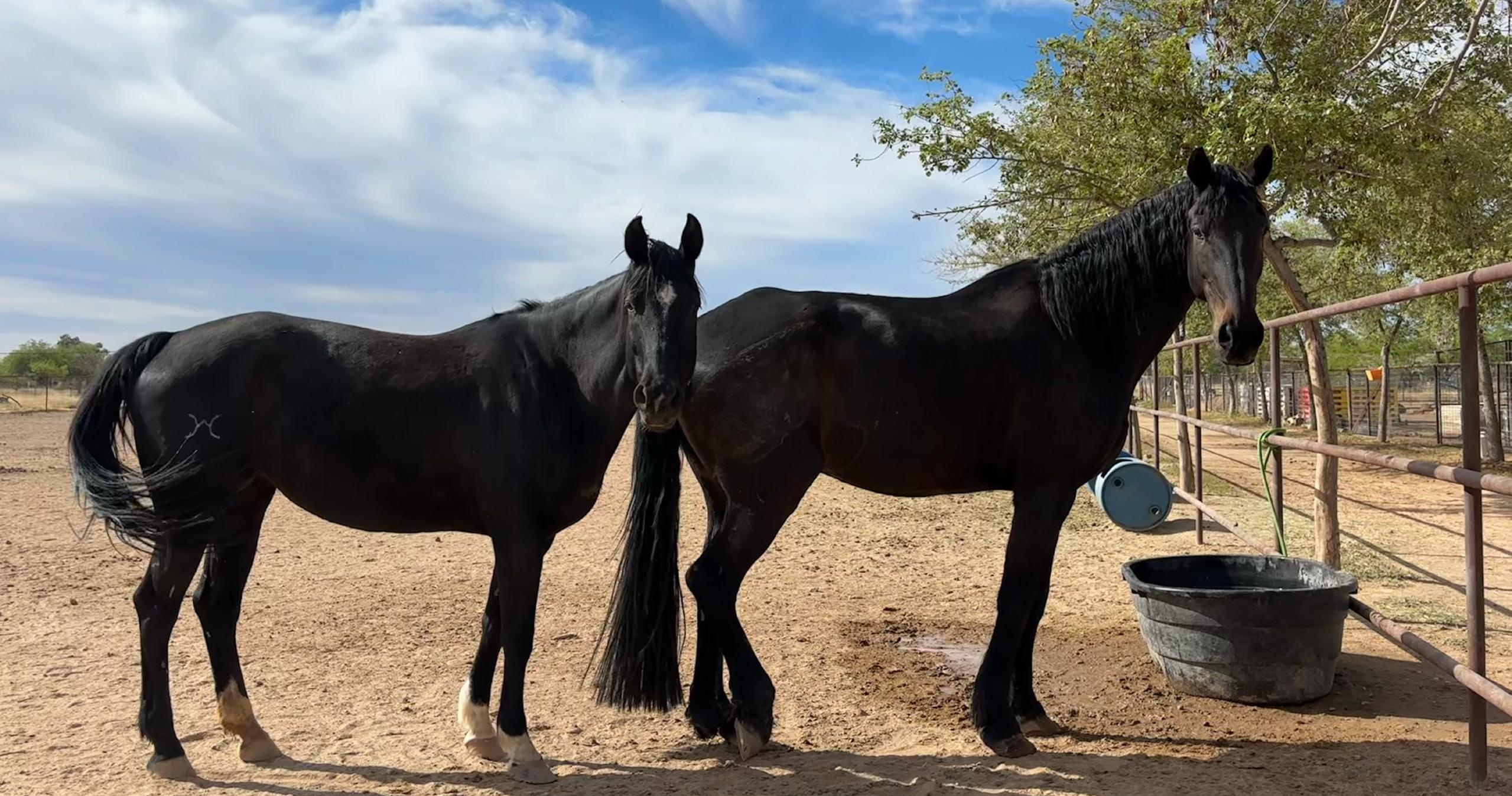
Grades: 9–12
Dates: June 28–July 4
Residential only program
Tuition: $3,799
Large animal medicine is a vitally important job in protecting the well-being of horses as well as the various farm animals and humans they often come into contact with. During your time at Veterinary Academy: Horses & Large Animals in Arizona, you can look forward to:
• Shadowing working large animal veterinarians at Gud Ark Animal Sanctuary as they care for rescued horses, cattle, sheep, goats, and pigs and teach you safe handling techniques, how to perform physical exams, and preventive medicine.
• Participating in clinical lab rotations to practice vital skills, including using a microscope to conduct blood smear examinations, calculating prescription dosages, and proper suturing and injection techniques.
• Honing animal husbandry and care skills, including practicing proper grooming techniques, monitoring vital health markers, and performing other necessary tasks for animal care.
• Tackling comparative anatomy principles, including the analysis of reptiles, birds, and other mammals.
Horses & Large Animals
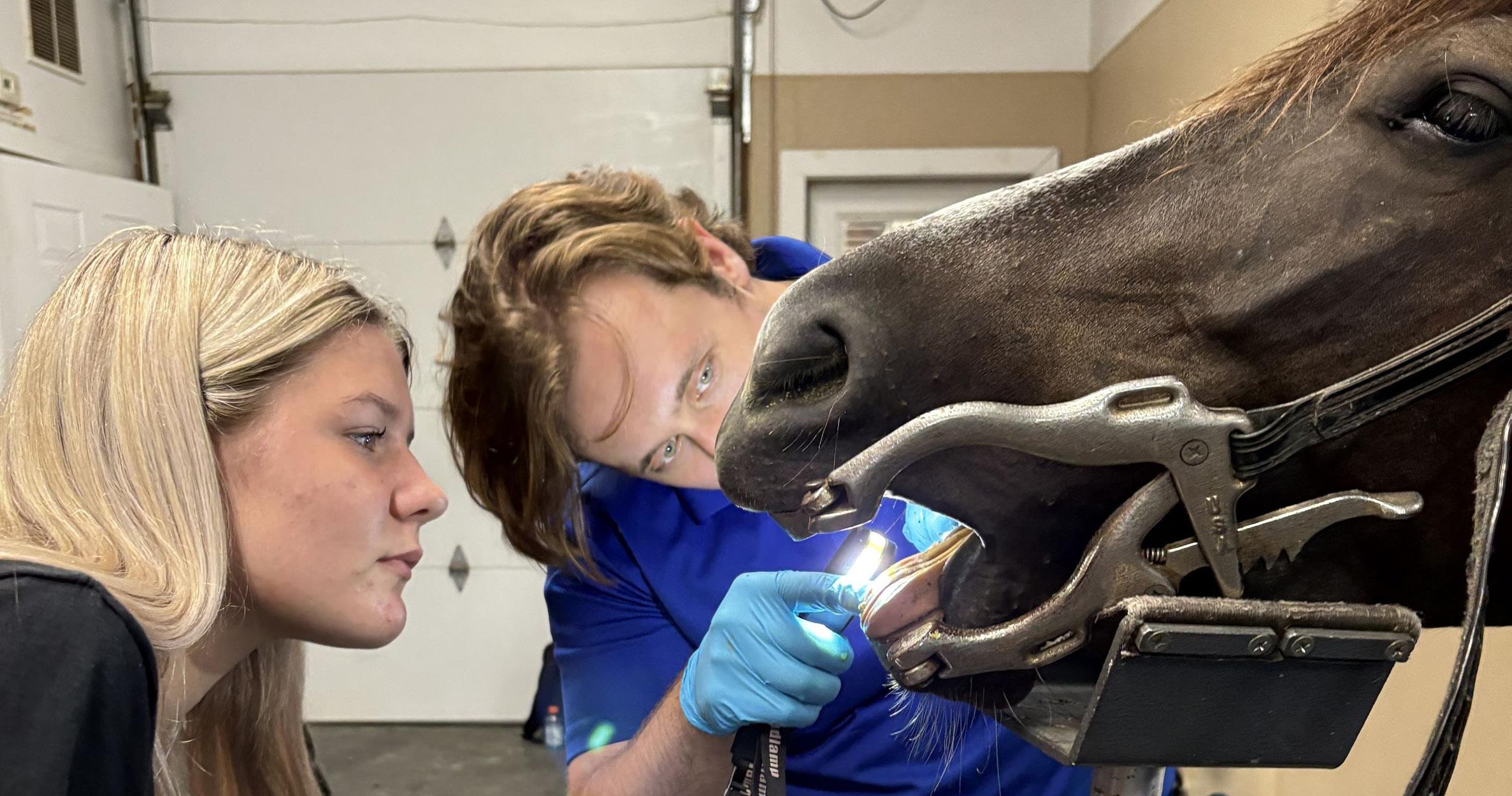
Grades: 9–12
Dates: July 5–11 | July 12–18
Residential only program
Tuition: $4,999
Large animal medicine is a vitally important job in protecting the well-being of horses as well as the various farm animals and humans they often come into contact with. During your time at Veterinary Academy: Horses & Large Animals in New York, you can look forward to:
• Shadowing a working large animal veterinarian as they care for rehabilitating horses and teach you how to perform physical exams, prep horses for surgery, and how to properly bandage healing wounds.
• Participating in clinical lab rotations to practice vital skills, including using a microscope to conduct blood smear examinations, calculating prescription dosages, and proper suturing and injection techniques.
• Learning about reproductive and neonatal health principles, preventative care techniques, and the importance of biosecurity and parasite control during a visit to a local horse breeding facility.
• Spending time at several equine rescue facilities and participating in hands-on experience on the horses there, including performing physical exams, practicing bandaging techniques, and identifying signs of lameness, illness, or prior medical conditions.
Zoo
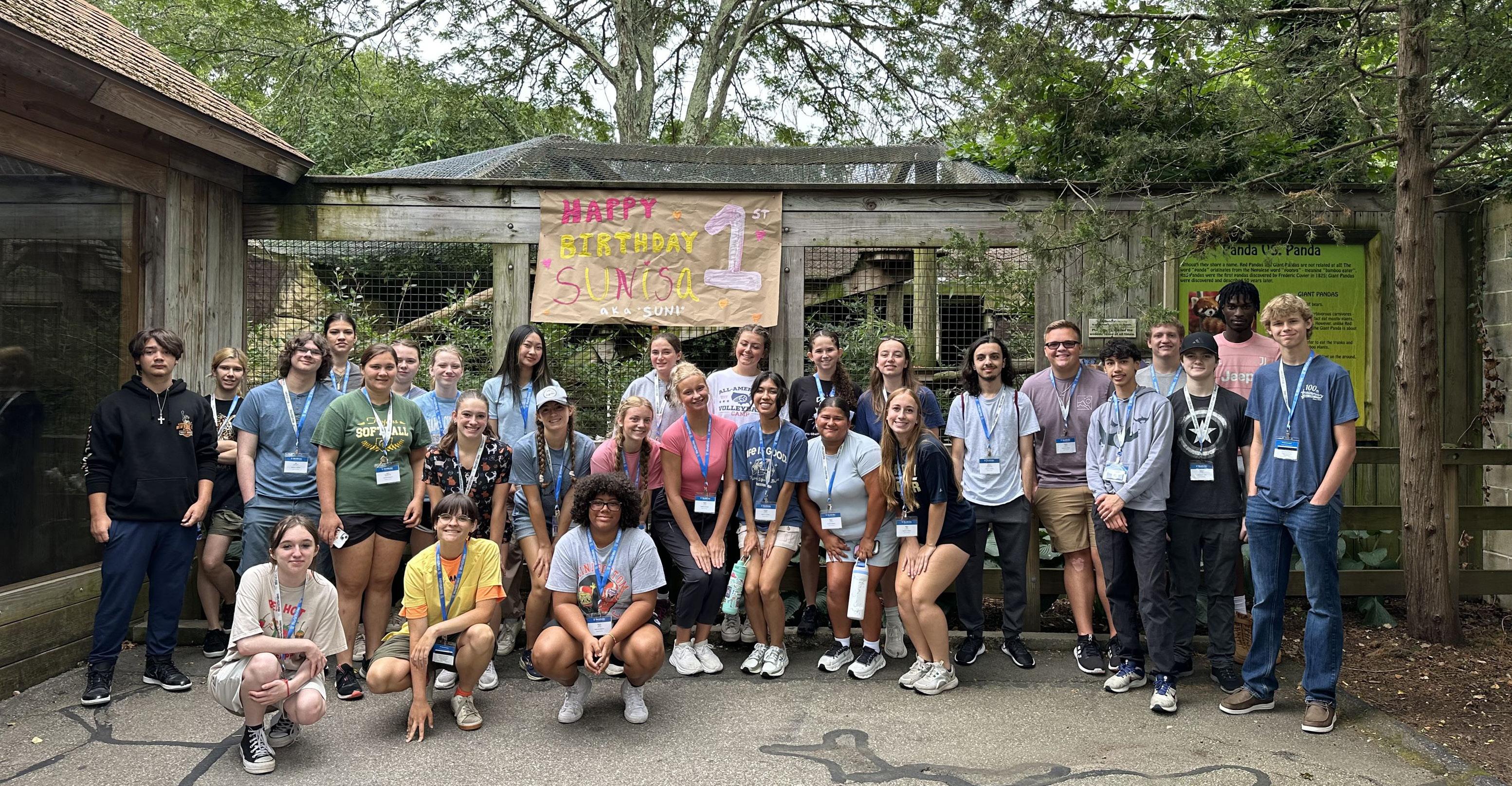
Grades: 9–12
Dates: July 12–18 | July 19–25
Residential only program
Tuition: $4,799
The Capron Park Zoo, home to about 100 animals representing 44 species, is on a mission to inspire the public to become more interested in the natural world through their exhibits and outreach programs. During your time at Veterinary Academy: Zoo Medicine in Massachusetts, you can look forward to:
• Daily animal care rotations including food preparation, enclosure maintenance, and designing animal enrichment activities.
• Field classes to explore important topics like animal behavioral observations, zoo ethics, rehabilitation and release, conducting large animal exams, and veterinary diagnostics across the different areas of the Capron Park Zoo.
• Researching and presenting your own Keeper Talk to the visiting public at the zoo
• Time in the lab participating in lab activities including wound suturing and bandaging, parasitology, small animal physical exams, and an enclosure design workshop.
• Visiting a working farm to learn about large animal medicine, an in-demand veterinary specialty in the United States and around the world. You’ll gain experience working with horses, pigs, and cattle.
Zoo Medicine VICTORIA, TX
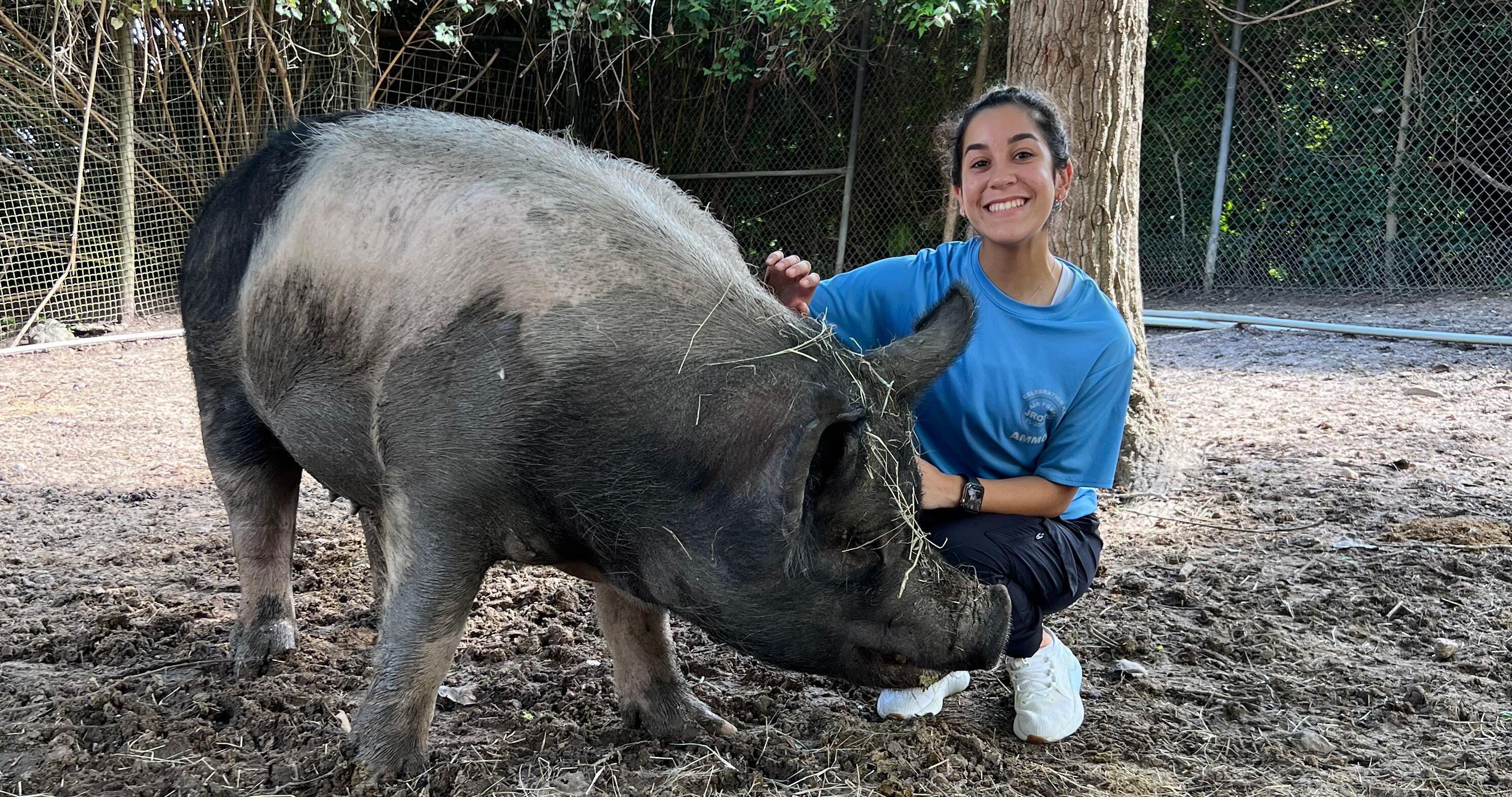
Grades: 9–12
Dates: June 21–27 | June 28–July 4
Residential only program
Tuition: $4,599
The Texas Zoo is on a mission to connect the public with wildlife and the importance of preserving as many species and habitats as possible. Many of the animals at the Texas Zoo are native to Texas and most are rescue animals that could not be returned to the wild. During your time at Veterinary Academy: Zoo Medicine in Texas, you can look forward to:
• Daily animal care rotations including food preparation, enclosure maintenance, and designing animal enrichment activities.
• Field classes to explore important topics like animal behavioral observations, zoo ethics, rehabilitation and release, conducting large animal exams, and veterinary diagnostics across the different areas of the Texas Zoo.
• Researching and presenting your own Keeper Talk to the visiting public at the zoo
• Time in the lab participating in lab activities including wound suturing and bandaging, parasitology, small animal physical exams, and an enclosure design workshop.
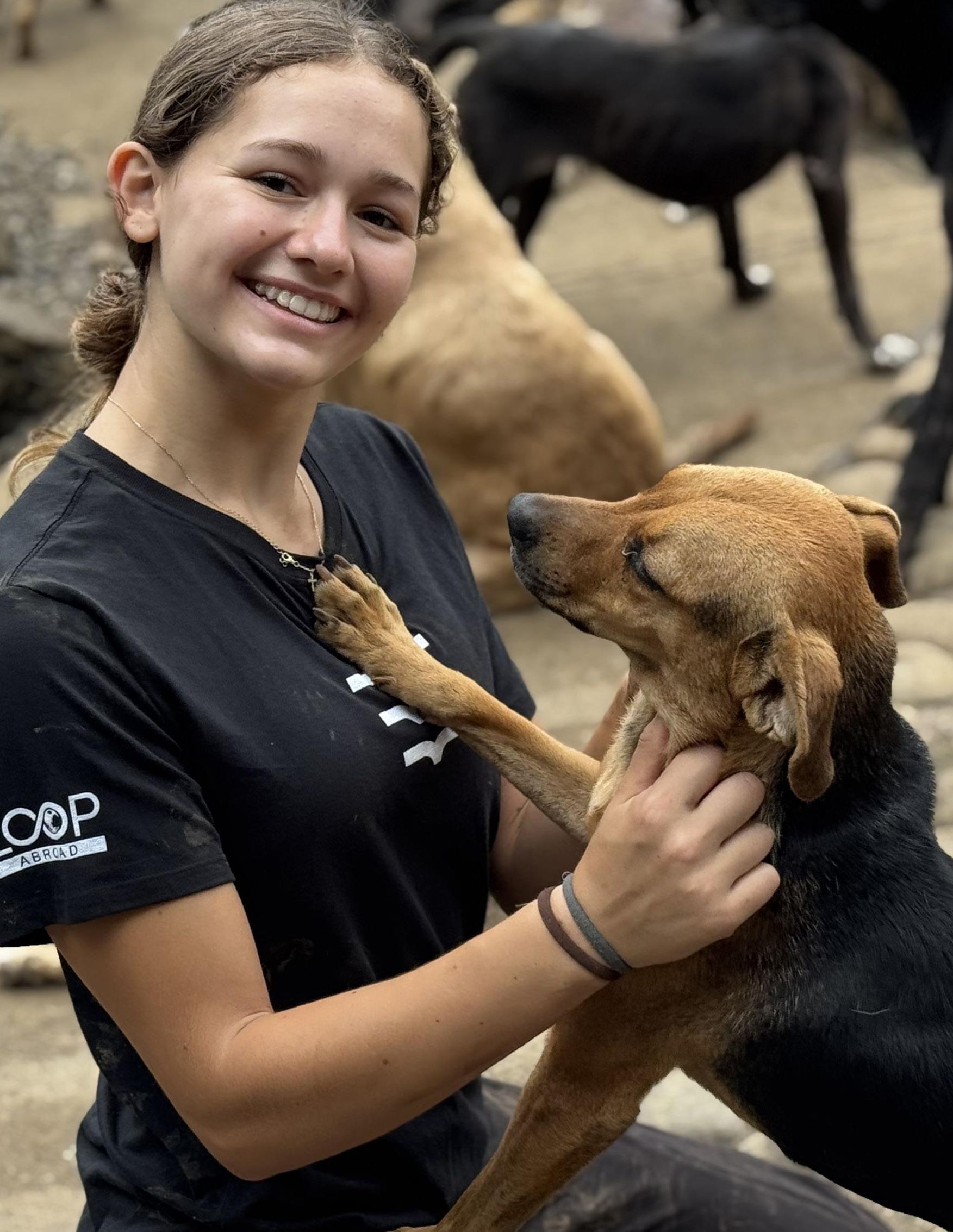
High School Programs
Costa Rica & Australia
Costa Rica SAN JOSÉ, COSTA RICA

Grades: 9–12
Dates: June 21–July 4 | July 19–August 1
Residential only program
Tuition: $7,199
Veterinary Academy: Costa Rica, you’ll get the opportunity to contribute to the vital efforts of respected animal care facilities as you learn from the experts who run them. You’ll spend two weeks working and learning at a stray dog sanctuary and at a wildlife rescue center where you can look forward to:
• Going behind-the-scenes at the Land of the Strays dog sanctuary where you’ll participate in clinical lab rotations to practice skills like conducting exams, injection and catheter placement, proper surgery prep techniques, conducting ear and skin cytology, and creating post-surgery care plans for dogs recovering from procedures, including spay and neuter surgeries.
• Completing rotations in the on-site animal hospital at Rescue Center Costa Rica and learning about rehabilitation for animals that have been the victims of wildlife trafficking or who otherwise need care, including toucans, spider monkeys, porcupines, and kinkajous.
• Honing your emergency veterinary skills, including suturing, taking animal histories, safe handling and restraint techniques, and specialized diet preparation.
• Practicing your animal identification skills while exploring the highly biodiverse area around the Arenal Volcano National Park and Manuel Antonio National Park.
• Immersing yourself in the culture of Costa Rica through fun, culturally enriching activities including a dance lesson, Spanish trivia, and an art project inspired by the motifs of the country.
Australian Wildlife CALGA, AUSTRALIA
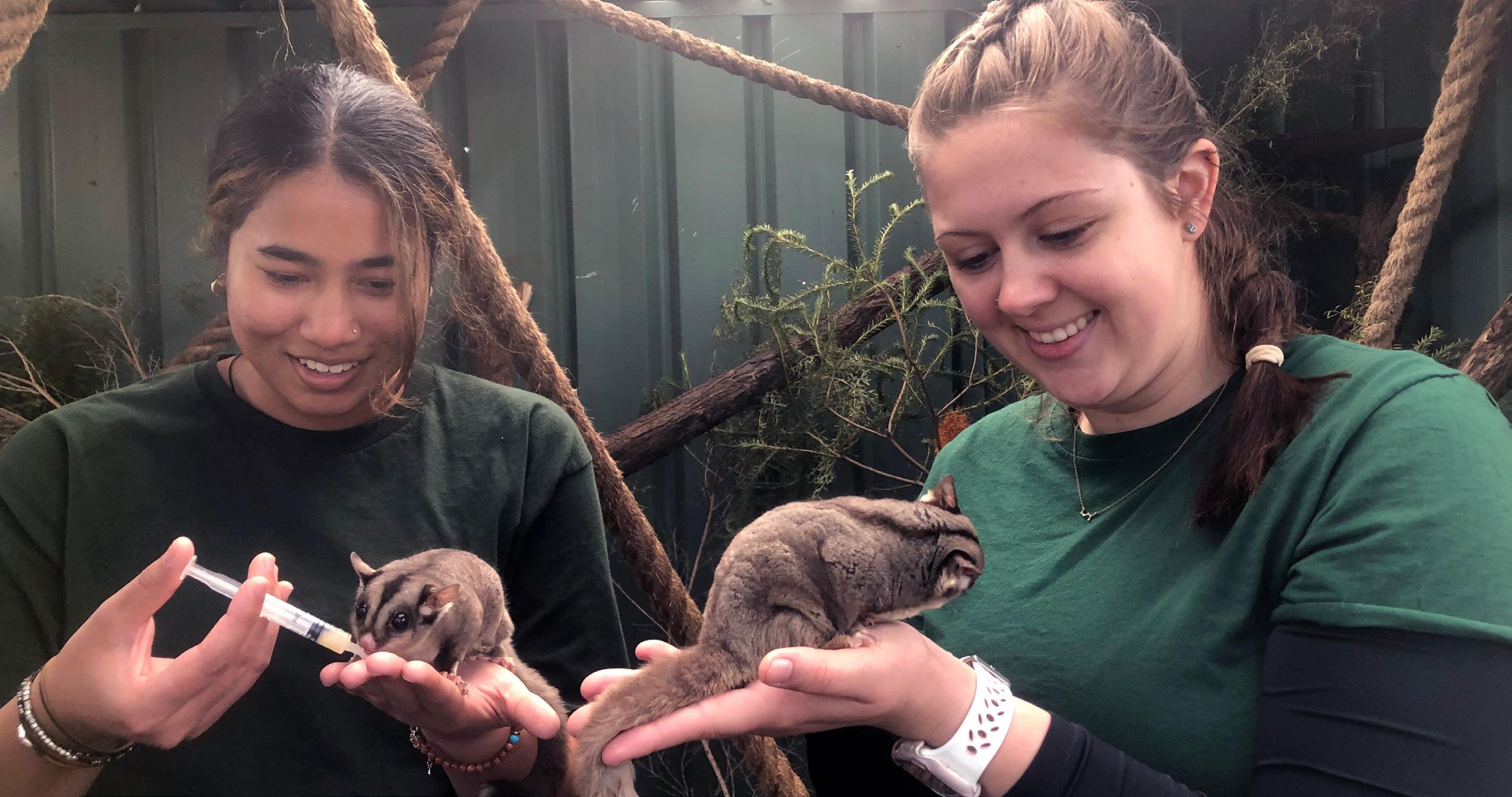
Grades: 9–12
Dates: July 26–August 8
Residential only program
Tuition: $7,199
On this two-week adventure, you’ll learn about the unique wildlife of Australia and explore Sydney. The ABCs of Australian wildlife (anatomy, behavior, and conservation) start at Walkabout Wildlife Park, your program base and home to koalas, kangaroos, wallabies, echidnas, and more.
At Veterinary Academy: Australian Wildlife you can look forward to:
• Living next to iconic Australian wildlife in authentic eco-cabins on 80 acres of protected bushland that is home to around 180 species of mammals, birds, reptiles, and frogs.
• Contributing to conservation efforts at a ZAA-accredited facility that participates in critical breeding programs for endangered species like Tasmanian devils and Eastern quolls.
• Participating in clinical lab rotations to practice essential skills including using a microscope to examine specimens, injection and suturing techniques, necropsy procedures, and conducting distance and physical exams.
• Exploring the Land Down Under including spending a day in Terrigal, where you’ll observe coastal wildlife and visit the Central Coast Marine Discovery Centre, and Sydney, where you’ll visit Sydney Harbour and go behind-the-scenes at the world-renowned Taronga Zoo.
• Learning from international experts in a small group setting that will provide personalized mentorship from both Australian and American veterinary professionals. This unique international perspective will broaden your understanding of global veterinary practices.
Program Details
From safety to scholarships, we’ve thought of everything to ensure you have a truly unforgettable experience.
Have more questions? Check out our website at vetmed.worldstrides.com or give us a call at 844-794-4426
SELECTION & ENROLLMENT
Students are selected for Veterinary Academy through one of the following ways:
• Nominated by educators, youth organization advisors, Envision program alumni, or academic institutions whose admissions criteria meet our standards
• Selected through surveys from college planning and assessment organizations; survey participants are invited based on proven academic excellence and career interest and have requested that the survey information be made available to colleges, universities, and other approved educational organizations
HEALTH & SAFETY
The well-being of our students and staff is our highest priority. We implement first-rate health, safety, and risk-management protocols for all of our programs based on recommendations from our Health & Safety Team and medical advisors. We’re also committed to evolving our policies and protocols to reflect our program partners’ requirements, public policy, and the Centers for Disease Control and Prevention (CDC) guidelines.
During your time at Veterinary Academy, your teaching veterinarian and other professional staff members will advise you of the proper time, place, and method to handle animals when it is safe to do so. For your own safety as well as the safety of the animals, not all animals may be touched or held by participants.
SUPPORTING STUDENT NEEDS & ACCOMMODATIONS
WorldStrides encourages the participation of all students who are academically, socially, and emotionally prepared for the program, including students with accommodation requests. Students, parents, guardians, legal representatives, or educators are encouraged to contact the Office of Admissions at 844-794-4426, as we may be able to provide appropriate auxiliary aids and services to assist students with needed accommodations. To be able to best assist with specific accommodation requests, it is recommended that families discuss specific requests with the Office of Admissions prior to enrollment.
SCHOLARSHIP AWARDS & STUDENT FUNDRAISING
WorldStrides offers a limited number of partial scholarships to qualified students each year based upon financial need, scholastic merit, leadership achievement, and other factors. Submission of a scholarship application is required to be considered for an award.
To learn more about our scholarship application process and fundraising ideas, contact the Office of Admissions at 844-794-4426. Both the scholarship application process and fundraising will take time, so students are strongly advised to begin as early as possible. Submission of a scholarship application is required to be considered for a reward.
PROGRAM TRANSPORTATION
Private motor coaches provide all transportation during the program.
All program participants are responsible for their own transportation to and from the program location. For international programs, all individuals are solely responsible for any passport and visa requirements.
Please Note: We encourage you to wait until after receiving confirmation of your session enrollment before booking any travel arrangements.
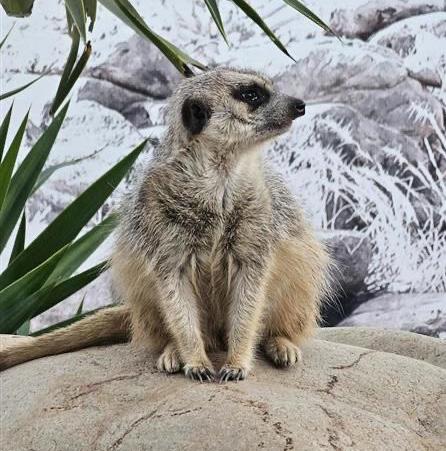
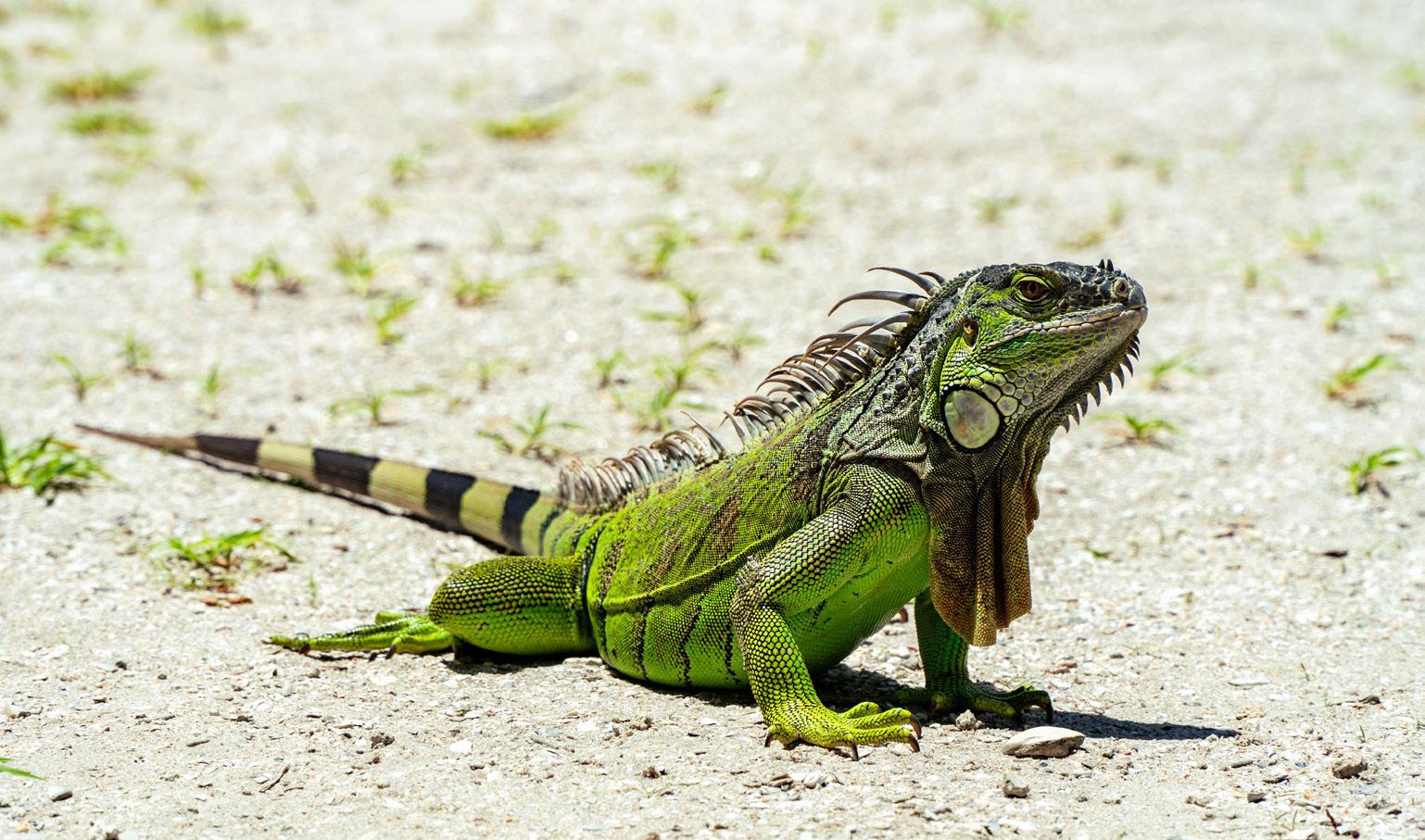
Our Partnership with Loop Abroad
Veterinary Academy was created in collaboration with Loop Abroad to empower students with a better understanding of the careers available in animal science and how to pursue them. Under the direction of Loop Abroad’s expert teaching veterinarians, students will develop hands-on skills that prepare and encourage them to work toward the animal science careers of their dreams.
Loop Abroad was founded in 2009 with the goal of broadening pre-veterinary education by introducing a more global perspective. Over the past thirteen years, they have become the leading pre-veterinary travel program in the nation, with programs in nine countries across six continents and thousands of alums at university and vet school campuses across the United States.
Our partner programs with Loop Abroad are designed to immerse students in the field of veterinary medicine and introduce the wide variety of careers available to veterinarians. Each small group of students is paired with a teaching veterinarian whose sole job is to mentor these students and build a community of driven individuals who are eager to change the world for the animals they love. With a full team of wildlife and zoo experts from around the world, Loop Abroad empowers students to pursue the animal science careers of their dreams.
About WorldStrides
For over 55 years, WorldStrides has been creating life-changing moments for students. Our programs provide immersive test drives of nearly 20 different career paths, from Medicine to National Security to Veterinary Medicine. After attending one of our programs, 92% of students can identify multiple career paths within their field of interest.
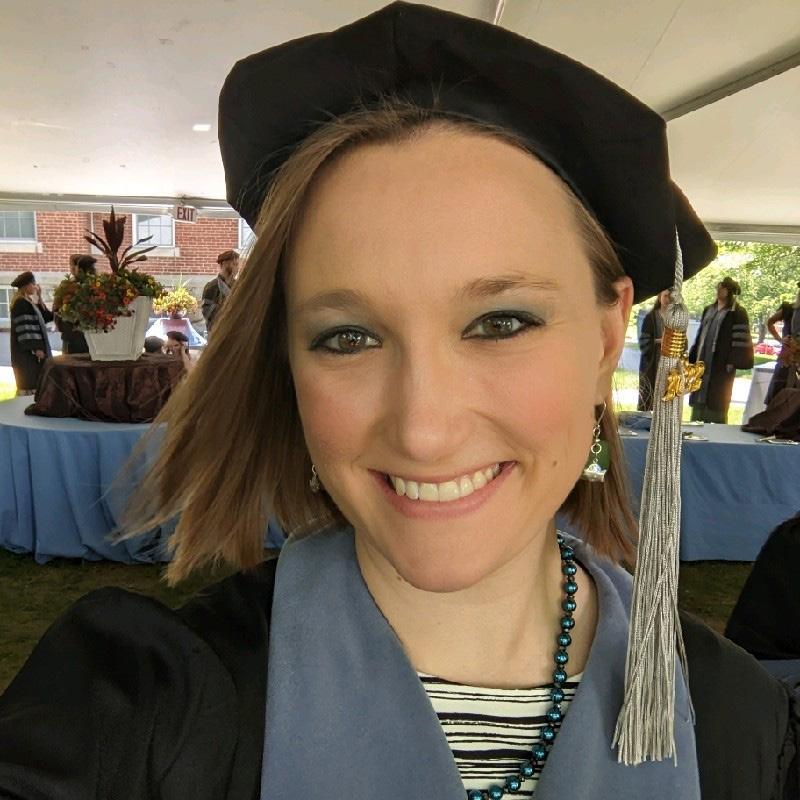
Dr. Lauren Gawel earned her DVM at the Cummings School of Veterinary Medicine at Tufts University in 2022 and works as an Avian and Exotics Specialty Associate Veterinarian in Massachusetts. She is an alumna of the Loop Abroad pre-veterinary program, which she attended as a high school student. Dr. Lauren’s areas of interest include conservation, reptiles, wildlife research, sustainable living, and teaching the next generation of veterinarians through the Veterinary Academy program.
